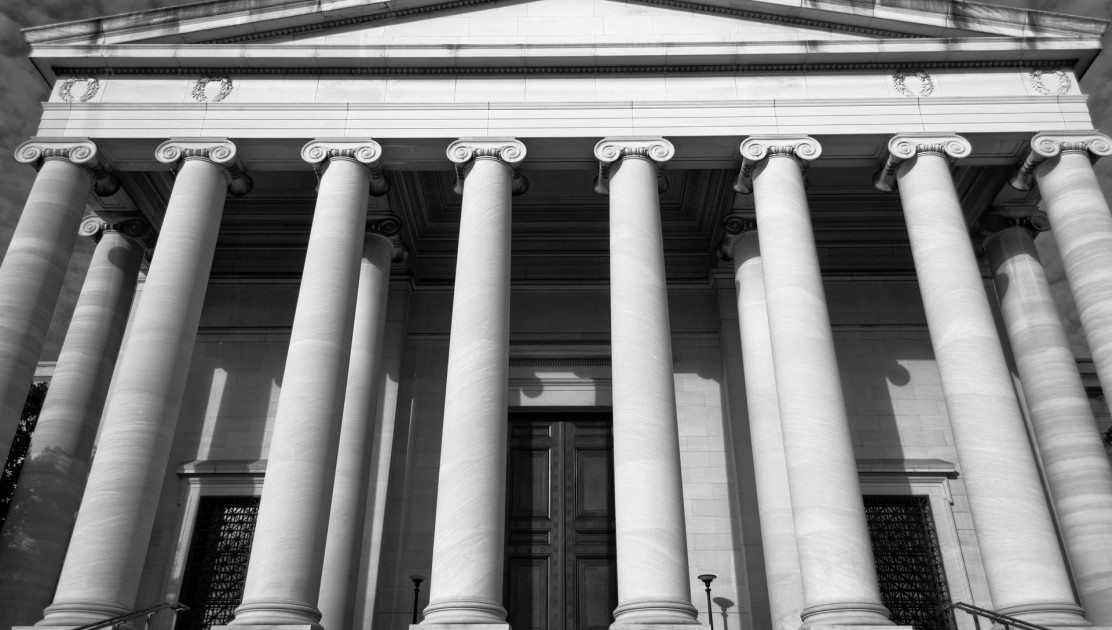From Stress Reduction to Systems Change
How mindfulness is transforming lawyers and the legal system
By Dan Carlin and Charlie HalpernNearly 20 years after first being introduced to the legal profession, mindfulness is becoming a powerful force—not only for individual wellness and effectiveness, but also for transforming the profession in areas such as discrimination law, judicial training, and criminal justice. Next month, a diverse group of legal professionals, law teachers, and law students will explore these exciting new developments as part of the Mindful Lawyering Retreat at the Garrison Institute (May 5-8), co-sponsored by CUNY School of Law and Columbia Law School.
The retreat will be an opportunity for those in the legal field to practice mindfulness in community, to reflect together on how mindfulness can make our work in the law more meaningful and sustainable, and to discuss how it can help create a more just, compassionate, and reflective legal system.
A decade ago, the prospect that mindfulness might influence how legal institutions operate was remote. But over the last decade, alongside the mainstream enthusiasm for mindfulness, an increasing number of law students and law practitioners have embraced the practice and the cumulative effect is beginning to be felt. More than two dozen law schools have offered their students courses and programs involving mindfulness, not only for wellness, but also for finding fulfillment in a legal career, greater effectiveness in trial practice, and increasing emotional intelligence, among others. State bar associations around the country now regularly recommend the practice to help members develop resilience and combat substance abuse. And in the criminal justice system, prosecutors, public defenders and judges are beginning to adopt mindfulness as a way to reduce implicit bias, enhance emotional intelligence, and make their work more sustainable.
The greater public acceptance of mindfulness has enabled rich conversations about how the practice could be not only a private activity benefiting individual lawyers, but an integral component of our legal institutions and legal doctrines.
At the Mindful Lawyering retreat, for example, Columbia Law Professor Elizabeth Emens will engage participants in a discussion about how mindfulness can help to bring greater reflectiveness—in our workplaces and elsewhere—to legal and interpersonal issues related to disability, where reflexive behavior causes so much harm and even substantial costs. CUNY Law Professor Victor Goode, will offer a session on mindfulness and racial bias, and how mindfulness training can help to address the dysfunctions in our criminal justice system. Together, we will consider how these and other applications of mindfulness could make our legal system more fair, inclusive, and effective.
Jeremy Fogel, a Senior District Court Judge and Director of the Federal Judicial Center in Washington DC recently offered a vision for what that might look like in the judiciary with his paper “Mindfulness and Judging.” He describes how greater judicial self-awareness might, for example, influence the process of taking a plea:
Mindfully taking a plea involves approaching each plea as a new and unique situation. The judge notices consciously things that otherwise might tend to be noticed only in passing, if at all: the defendant’s tone of voice and body language, the way the defendant and counsel appear to be communicating (or not communicating) with each other, the defendant’s physical appearance, whether friends or family members of the defendant (or victims) appear to be in the courtroom, and so on. None of these things necessarily changes the outcome of the process, yet taken as a whole they can help the judge learn more about the defendant and assess more fully whether the defendant is entering a knowing and voluntary plea. And perhaps just as importantly, the attentiveness shown by the judge is communicated to the defendant and everyone else who is present.
Coming from the judge in charge of managing the training of federal judges, the paper could be a watershed in institutional acceptance of mindfulness in the legal profession.
The Association of Prosecuting Attorneys, a leading training organization for prosecutors, has begun integrating mindfulness training into its leadership training programs for DA’s offices around the country, as a way to address vicarious trauma and implicit bias, among other issues facing the profession. These parallel increasing calls for bringing greater compassion and wisdom into the law, such as prosecutor Adam Foss’ eloquent TED talk and Bryan Stevenson’s deeply compassionate criminal defense work in the South.
In our retreat next month, we will explore these promising possibilities in the context of extensive meditation practice—sitting, walking, and qi gong—and reconnect with the qualities of stillness, clarity, and compassion that little by little are bringing change to our profession.
On the evening of May 7, Charlie Halpern will discuss with NY State Attorney General Eric Schneiderman how mindfulness can reshape the legal system and the criminal justice system in particular.
